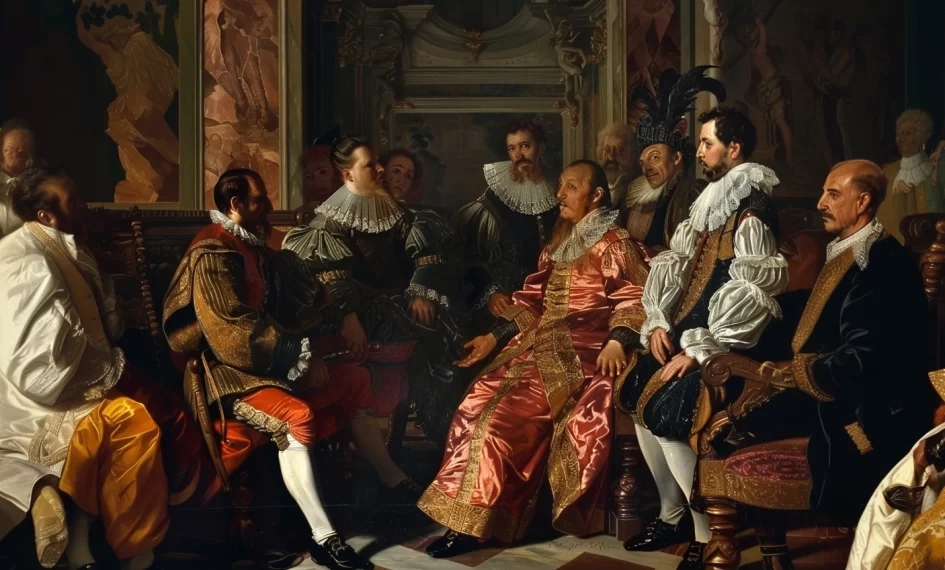Definition:
Aristocracy refers to a form of government or the highest social class in certain societies, characterized by hereditary titles of nobility, privilege, and wealth. It encompasses a ruling class of nobles who hold significant power, often derived from land ownership, lineage, and historical influence. In many societies, the aristocracy played a crucial role in governance, social structure, and cultural patronage.
Etymology & Origin:
The word “aristocracy” comes from the Greek “aristokratia,” combining “aristos” (best) and “kratos” (power, rule). This term originally signified the rule of the “best” class, implying a government led by a superior, noble class believed to possess the qualities most desirable for leadership. The concept has roots in ancient Greece but has been adopted and adapted by various societies throughout history.
Examples:
- The British aristocracy, with its complex hierarchy of dukes, earls, viscounts, and barons, has significantly influenced the country’s political and cultural landscape.
- The Venetian aristocracy, known for its strict admission criteria and influence on the Republic’s governance, exemplifies how aristocracies could also emerge in mercantile city-states.
- In literature and film, the portrayal of aristocratic life, with its opulence, etiquette, and political intrigue, often serves to critique or romanticize the power dynamics and social structures of historical periods.



